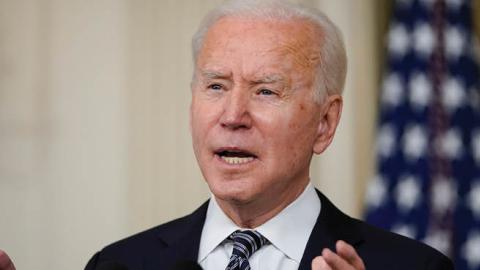The defence challenge in Asia is enormous. The Joe Biden administration must preserve a credible force posture to defend against potential threats from North Korea, China and Russia. It must also transform a Cold War legacy force structure with advanced technologies like artificial intelligence, autonomous systems and quantum computing. It must do all this as it battles to contain the COVID-19 pandemic, turn an economic recession into more equitable growth and overcome deep political and racial divisions at home.
North Korea’s test of the Hwasong-15 intercontinental ballistic missile (ICBM) in November 2017 demonstrated its ability to strike the US homeland. Kim Jong-un told the Eighth Congress of the Workers’ Party of Korea in January 2021 that his country needed more weapons. Easily reversible promises not to test nuclear weapons and long-range missiles appear dubious deterrents to Kim’s ambition of making North Korea a permanent nuclear-weapon state.
President Biden would like to strengthen non-proliferation, including through negotiations with North Korea, yet even a rational North Korean regime could trigger conflict through miscalculation.
Yet North Korea is a minor irritant next to the China challenge.
The People’s Liberation Army (PLA) is the United States’ most daunting military problem, even though military power is far from Beijing’s main strategic thrust. President Xi Jinping’s priority is China’s economic and technological leadership, which, if achieved, could yield military advantage and, if halted, could trigger military action.
Xi is using this centennial year of the Chinese Communist Party to burnish his credentials as the most powerful man in China. A might- makes-right conviction is found in his exhortation that the PLA must be ready ‘to act at any second’. Having watched Xi silence Uyghurs in Xinjiang and create a national security law to throttle Hong Kong, democratic Taiwan and regional states should not rest comfortably.
Read the full article here















